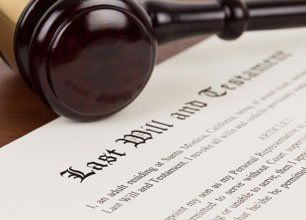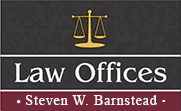Wills & Trusts Services
Practicing for Over 30 Years | A Community-Focused Law Firm!
Practicing for Over 30 YearsFair PricingLocally Owned
It's Never Too Early to Start Planning for the Future
No matter how young or old you are, it's important to have a plan for your future and the financial security of your family. In the event of the worst, you'll want to be sure your assets and loved ones are protected.
With more than 30 years of experience, Steven W. Barnstead will make sure everything is in order according to your wishes.

Everything You Need to Get Your Affairs in Order
- Wills and trust preparation
- Trust formation
- Healthcare proxies
- Living wills
- Estate planning
- Will contests
- Will contests
- Probate / administration
- Health care proxies / living wills
- Power of attorney
The power of attorney is probably the most powerful and for this reason, dangerous estate planning tool.
It is important that everyone has a Power of Attorney, but proper care, including naming appropriate agents and sheltering the document, should be taken to prevent it from being used until it is needed.
A Power of Attorney provides the agent with access to and control of the principal’s assets. An agent has the power to withdraw funds, write checks, change beneficiaries and transfer real estate.
The agent acts in place of the principal's shoes, allowing him or her to make decisions for that person. These are important powers if the principal would be rendered unable to act, but are sufficiently broad to require caution.
A Power of Attorney can prevent the need for obtaining a guardian over a disabled or elderly person who needs help. Because of this, it is important that A Power of Attorney is created while someone is healthy and the document needs to be kept safe.
Creating a Power of Attorney when a person is healthy is far less expensive than appointing a guardian later.

Personalized Legal Service at a Fair Price
Steven W. Barnstead is happy to provide the personalized legal advice you need for more than just wills and trusts.
Contact
our office today to set up a consultation about real estate law, probate & estates, or business formations.

FREE Parking!
Call: 607-734-1216
